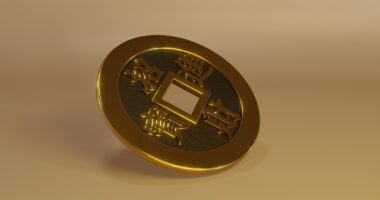The NFT market has experienced significant growth in recent years, with transaction values reaching billions of dollars. NFTs (non-fungible tokens) are unique digital assets stored on blockchain technology, representing ownership of specific items or content, including digital art, collectibles, music, and virtual real estate. Understanding this market requires comprehensive research and analysis of current trends, popular platforms, and successful NFT projects.
Key aspects of understanding the NFT market include researching popular NFT types, such as digital art, virtual real estate, music, and videos. Analyzing market trends helps identify opportunities for creating unique and marketable NFT collections. Investigating popular platforms for buying, selling, and minting NFTs is crucial for determining where target audiences are most active and engaged, aiding in the selection of the best platform for launching NFT projects.
Studying successful NFT projects provides insights into what resonates with the community and drives sales and engagement. Analyzing strategies and tactics used by successful NFT creators can inform decision-making and improve the positioning of new NFT collections. Analyzing demographics and preferences of the NFT community is essential for tailoring content and marketing strategies to potential buyers.
Market research can reveal in-demand content types and help create unique, marketable NFT collections that attract attention and drive sales. Understanding legal and ethical considerations surrounding NFTs is crucial. This includes knowledge of copyright laws, intellectual property rights, and potential legal implications of creating and selling NFTs.
Thorough research into these aspects ensures compliance with relevant laws and regulations, reducing the risk of future legal issues. Comprehensive research and analysis of the NFT market are essential for making informed decisions and maximizing the potential of NFT projects.
Key Takeaways
- Research and analyze the current trends and demand in the NFT market to understand what collectors are looking for.
- Focus on creating a unique and high-quality NFT collection that stands out in the market and appeals to potential buyers.
- Choose the right platform for launching your NFT project based on factors such as fees, audience, and ease of use.
- Develop a comprehensive marketing strategy to promote your NFT project through social media, influencers, and targeted advertising.
- Engage with the NFT community by participating in forums, events, and collaborations to build a following and gain support for your project.
- Implement secure and efficient processes for managing NFT sales and transactions to ensure a smooth experience for buyers and sellers.
- Build a team with skills in art, technology, marketing, and legal aspects to support the development and success of your NFT project.
Creating a Unique and Marketable NFT Collection
Creating a unique and marketable NFT collection requires careful planning, creativity, and a deep understanding of the target audience. With the growing competition in the NFT market, it is essential to differentiate your collection from others and offer something truly unique and valuable to potential buyers. This can be achieved through a combination of original content, storytelling, and strategic curation.
One key aspect of creating a unique and marketable NFT collection is to focus on original content that stands out from the crowd. This can include original artwork, music, videos, or any other type of digital content that showcases your creativity and talent. By offering something truly unique and original, you can capture the attention of potential buyers and stand out in a crowded marketplace.
Additionally, storytelling can play a crucial role in creating a connection with potential buyers and adding value to your NFT collection. By sharing the inspiration and story behind each piece of content, you can create a deeper emotional connection with your audience and make your NFTs more compelling and desirable. Furthermore, strategic curation can help you create a cohesive and attractive NFT collection that appeals to a wide range of potential buyers.
By carefully selecting and curating the content in your collection, you can create a sense of exclusivity and value that drives interest and demand. This can include collaborating with other artists or creators to offer a diverse range of content within your collection, appealing to different tastes and preferences within the NFT community. Overall, creating a unique and marketable NFT collection requires a combination of original content, storytelling, and strategic curation to capture the attention of potential buyers and stand out in a competitive market.
In addition to focusing on original content, storytelling, and strategic curation, it is also important to consider the technical aspects of creating NFTs. This includes understanding the process of minting NFTs, choosing the right blockchain for your collection, and ensuring that your NFTs are properly stored and secured. By mastering the technical aspects of creating NFTs, you can ensure that your collection meets industry standards and is easily accessible to potential buyers.
This can help build trust and confidence in your NFT project, making it more attractive to potential buyers. Another important aspect of creating a unique and marketable NFT collection is to consider the long-term value and potential for growth. This includes thinking about how your collection can evolve over time, offering additional content or exclusive perks to existing owners.
By planning for long-term value and growth, you can create a more sustainable and attractive NFT collection that continues to generate interest and demand over time. Overall, creating a unique and marketable NFT collection requires careful planning, creativity, technical mastery, and a focus on long-term value to stand out in a competitive market.
Choosing the Right Platform for Launching Your NFT Project

Choosing the right platform for launching your NFT project is crucial for reaching your target audience, maximizing visibility, and driving sales. With a growing number of platforms available for minting, buying, and selling NFTs, it is important to carefully consider the features, audience, fees, and overall reputation of each platform before making a decision. One key aspect of choosing the right platform for launching your NFT project is to consider the audience and community that each platform attracts.
Different platforms cater to different demographics and preferences within the NFT community, so it is important to choose a platform that aligns with your target audience. This can include considering factors such as the types of content that are popular on each platform, the level of engagement within the community, and the overall reputation of the platform among creators and buyers. By choosing a platform that resonates with your target audience, you can maximize visibility and reach potential buyers more effectively.
Furthermore, it is important to consider the features and tools offered by each platform for minting, promoting, and selling NFTs. This can include factors such as user interface, customization options, promotional tools, analytics, and security features. By choosing a platform that offers robust features and tools for creators, you can streamline the process of launching your NFT project and maximize its potential for success.
Additionally, considering the fees associated with each platform is important for understanding the costs involved in minting and selling NFTs. By comparing the fees of different platforms, you can make an informed decision that aligns with your budget and financial goals for your NFT project. In addition to considering the audience, features, tools, and fees of each platform, it is also important to evaluate the overall reputation and track record of each platform within the NFT community.
This includes researching user reviews, success stories from other creators, any past issues or controversies related to each platform. By choosing a platform with a strong reputation for supporting creators and providing a positive experience for buyers, you can build trust in your NFT project and attract more potential buyers. Overall, choosing the right platform for launching your NFT project requires careful consideration of audience demographics, features, tools, fees, reputation within the community to maximize visibility reach potential buyers effectively.
Marketing and Promoting Your NFT Project
Marketing and promoting your NFT project is essential for building awareness, driving engagement, attracting potential buyers. With an increasing number of creators entering the NFT space competition for attention has become fierce. Effective marketing strategies can help you stand out from the crowd reach your target audience more effectively.
One key aspect of marketing promoting your NFT project is to develop a strong brand identity that resonates with your target audience. This includes creating a compelling brand story that communicates your values vision as an artist or creator. By developing a strong brand identity you can create an emotional connection with potential buyers make your NFT project more memorable desirable.
Additionally leveraging social media platforms such as Twitter Instagram can help you build an online presence engage with your audience in meaningful ways. Furthermore leveraging influencer partnerships collaborations can help you expand reach connect with new audiences who may be interested in your NFT project. By partnering with influencers who have a strong following within the NFT community or related industries you can leverage their credibility reach to promote your project effectively.
Additionally hosting virtual events or live streams where you showcase preview your NFT collection can help generate excitement engagement among potential buyers. In addition to developing a strong brand identity leveraging social media platforms influencer partnerships it is also important to consider paid advertising strategies to reach a wider audience effectively promote your NFT project. This can include running targeted ads on social media platforms or partnering with relevant websites or publications to feature promote your collection.
By investing in paid advertising strategies you can increase visibility reach potential buyers who may not be familiar with your work or active within the NFT community. Overall marketing promoting your NFT project requires a combination of developing a strong brand identity leveraging social media platforms influencer partnerships hosting virtual events paid advertising strategies effectively reach engage with potential buyers.
Engaging with the NFT Community Building a Following
Engaging with the NFT community building a following is crucial for building awareness generating interest in your project among potential buyers. The NFT community is highly active engaged on social media platforms forums so it is important to actively participate in conversations engage with other creators collectors within the community. One key aspect of engaging with the NFT community building a following is to actively participate in relevant discussions on social media platforms such as Twitter Discord Clubhouse others where members of the community gather share their work discuss industry trends news.
By actively participating in conversations sharing insights about your creative process or offering valuable contributions to discussions you can build credibility visibility within the community attract more followers who may be interested in your work. Furthermore collaborating with other creators or participating in community events such as virtual art shows panel discussions can help you expand reach connect with new audiences within the NFT community. By collaborating with other creators who share similar interests or participating in events where you showcase preview your work you can leverage their following credibility to attract more attention engagement for your project.
In addition to actively participating in discussions collaborating with other creators it is also important to consistently share updates about your work progress on social media platforms engage with your followers in meaningful ways. This can include sharing behind-the-scenes insights about your creative process offering sneak peeks previews of upcoming releases or hosting Q&A sessions where you interact with your followers answer their questions about your work. Overall engaging with the NFT community building a following requires active participation in relevant discussions on social media platforms collaborating with other creators participating in community events consistently sharing updates about your work progress engaging with followers in meaningful ways.
Managing NFT Sales Transactions

Managing NFT sales transactions requires careful planning organization to ensure smooth efficient processes for both creators buyers involved in purchasing selling digital assets. From setting pricing strategies managing auctions to handling payments delivering digital assets there are several key considerations when it comes to managing sales transactions for an NFT project. One key aspect of managing NFT sales transactions is setting pricing strategies that align with the value quality of your digital assets while also appealing to potential buyers within the market.
This can include considering factors such as rarity uniqueness demand when determining pricing for individual pieces within your collection or setting starting bids reserve prices for auctions if applicable. Furthermore managing auctions effectively requires careful planning communication with potential buyers throughout the process. This includes setting clear timelines rules for participating in auctions communicating any updates or changes promptly to ensure transparency fairness for all participants involved.
In addition handling payments delivering digital assets securely efficiently is crucial for building trust confidence among buyers involved in purchasing your digital assets. This includes choosing secure payment methods such as cryptocurrency or partnering with trusted payment processors to facilitate transactions ensuring that digital assets are delivered promptly upon completion of purchases. Overall managing sales transactions for an NFT project requires careful planning organization setting pricing strategies managing auctions handling payments delivering digital assets securely efficiently to ensure smooth processes for both creators buyers involved in purchasing selling digital assets.
Building a Team for Your NFT Project
Building a team for your NFT project can help you leverage diverse skills expertise collaborate with other professionals who can contribute to different aspects of launching promoting selling digital assets effectively within the market. One key aspect of building a team for your NFT project is identifying key roles responsibilities needed to bring your vision to life effectively manage different aspects of launching promoting selling digital assets within the market. This can include roles such as artists designers developers marketers legal advisors others who can contribute their expertise skills to different areas within your project.
Furthermore collaborating with other professionals who have experience expertise within the industry can help you leverage their knowledge network connections to navigate challenges effectively promote sell digital assets within the market. This includes partnering with artists who have experience creating successful collections marketers who have expertise in promoting digital assets developers who have technical skills needed to mint sell digital assets securely efficiently others who can contribute valuable insights contributions to different aspects of launching promoting selling digital assets within the market. In addition building a team for your NFT project also requires effective communication collaboration among team members involved in different aspects of bringing your vision to life effectively managing different processes within your project.
This includes setting clear goals expectations for each team member establishing regular check-ins meetings to ensure that everyone is aligned working towards common objectives effectively manage different aspects of launching promoting selling digital assets within the market. Overall building a team for your NFT project requires identifying key roles responsibilities collaborating with other professionals who have experience expertise effective communication collaboration among team members involved in different aspects of bringing your vision to life effectively managing different processes within your project.
If you’re interested in learning more about the NFT industry and how to get involved, check out this article on NFT Jobs. This website offers valuable resources and information for those looking to break into the NFT space, including job opportunities, industry news, and helpful tips for launching your own NFT project. It’s a great complement to the essential steps and tips outlined in the How to Launch an NFT Project article.
FAQs
What is an NFT project?
An NFT project involves creating and launching non-fungible tokens (NFTs) on a blockchain platform. These NFTs can represent digital or physical assets and are unique and not interchangeable.
What are the essential steps to launch an NFT project?
The essential steps to launch an NFT project include defining the concept and purpose of the project, creating the digital assets to be tokenized, choosing a blockchain platform, creating and minting the NFTs, setting up a marketplace for the NFTs, and promoting the project to potential buyers and collectors.
What are some tips for launching a successful NFT project?
Some tips for launching a successful NFT project include conducting thorough research on the NFT market and trends, collaborating with artists and creators, building a strong community around the project, leveraging social media and other marketing channels, and ensuring transparency and authenticity in the project’s offerings.
How can I choose the right blockchain platform for my NFT project?
When choosing a blockchain platform for an NFT project, it’s important to consider factors such as the platform’s security, scalability, transaction fees, and community support. Popular blockchain platforms for NFTs include Ethereum, Binance Smart Chain, and Flow.
What are some common mistakes to avoid when launching an NFT project?
Common mistakes to avoid when launching an NFT project include rushing the process without proper planning, neglecting legal and copyright considerations, overpricing or undervaluing the NFTs, and failing to engage with the community and potential buyers.





